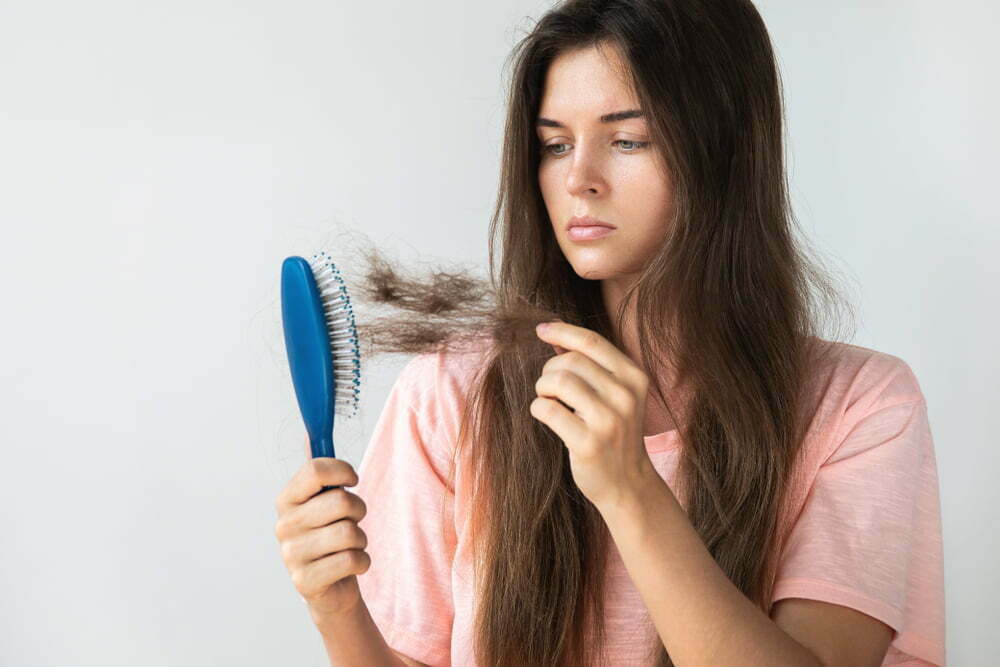Hair loss is a common concern that affects both men and women, causing distress and impacting self-esteem. Understanding the underlying causes of hair loss is crucial for implementing effective strategies to address the issue. In this article, we will delve into the root causes of hair loss, explore various factors contributing to the problem, and discuss actionable solutions to promote hair restoration and regain confidence.
Exploring the Causes of Hair Loss:
Genetics and Hormonal Factors: Hereditary factors play a significant role in hair loss. Androgenetic alopecia, commonly known as pattern baldness, is the most prevalent type of hair loss. Hormonal imbalances, particularly the overproduction of dihydrotestosterone (DHT), can contribute to hair follicle miniaturization and subsequent hair thinning.
Nutritional Deficiencies: Inadequate intake of essential nutrients, such as vitamins (particularly B vitamins), minerals (such as iron and zinc), and proteins, can impact hair health. Nutritional deficiencies weaken the hair follicles, leading to hair thinning and breakage.
Scalp Conditions: Certain scalp conditions, such as scalp psoriasis, seborrheic dermatitis, and fungal infections, can cause inflammation and disrupt the hair growth cycle. Inflammation hinders the proper functioning of hair follicles, resulting in hair loss.
Stress and Lifestyle Factors: Chronic stress, poor sleep patterns, and unhealthy lifestyle choices, including smoking and excessive alcohol consumption, can contribute to hair loss. These factors disrupt the natural hair growth cycle and weaken the hair follicles.
Addressing Hair Loss and Promoting Restoration:
Consultation with a Trained Professional: If experiencing significant hair loss, it is advisable to seek guidance from a qualified healthcare professional or a dermatologist specializing in hair loss. They can assess your condition, identify the root cause, and recommend appropriate treatment options.
Nutrient-Rich Diet: A well-balanced diet consisting of fruits, vegetables, lean proteins, and healthy fats supports overall hair health. Incorporate foods rich in vitamins, minerals, and proteins to provide essential nutrients for hair growth and strength.
Scalp Care and Hygiene: Maintain a clean and healthy scalp by regularly washing your hair with a mild shampoo. Gently massage the scalp to improve blood circulation and remove any buildup of dirt or excess oil that can hinder hair growth.
Stress Management Techniques: Adopt stress management techniques such as regular exercise, meditation, deep breathing exercises, and adequate sleep to reduce stress levels. Managing stress helps maintain a healthy hormonal balance and supports optimal hair growth.
Hair Care Practices: Avoid excessive heat styling, harsh chemical treatments, and tight hairstyles that can cause damage and breakage. Opt for gentle hair care practices, use suitable hair care products, and limit the use of styling tools to protect the hair shafts.
Understanding the root causes of hair loss empowers individuals to address the issue effectively. Genetic factors, hormonal imbalances, nutritional deficiencies, scalp conditions, stress, and lifestyle choices all contribute to hair loss. By consulting with professionals, adopting a nutrient-rich diet, practicing scalp care, managing stress, and adopting gentle hair care practices, individuals can promote hair restoration and maintain healthy hair. Remember, a comprehensive approach that addresses the underlying causes is key to combatting hair loss and regaining confidence in your appearance.



